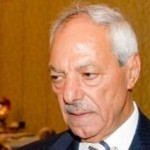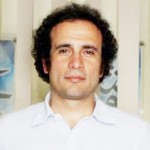As Morsy nearly finalises his three-day journey to China and heads towards a supposedly short, yet very unique, trip to Tehran, opinion writers in almost all Egyptian newspapers dissect the main reasons, repercussions and expected outcomes of the President’s two important visits.
Some writers have refuted arguments that Egypt has the potential to swiftly follow the path of Iran, while considering a comparative relation between Egypt’s 25 January revolution and the Iranian one that ousted the Shah in 1979.
On the another hand, many columnists listed down a number of warnings that Morsy should bear in mind when meeting with the Chinese and the Iranian presidents, alerting him to the fact that both are advocates of the authoritarian Al-Assad regime in Syria.
Egypt is not Iran
Amr Al-Shobaki
Al-Masry Al-Youm newspaper

In his column, Amr Al-Shobaki refutes comparative analysis that brings Egypt’s 25 January revolution into comparison with the Iranian one. Egypt is not Iran, he argues noting that several political and social differences materialize while scrutinizing the comparative politics of both uprisings. The Iranian revolution had leadership that eventually managed to ouster the Shah’s regime thanks to the participation of six million citizens, out of 30 million, who had been most suffering from oppression. Egypt’s revolution, in Al-Shobaki’s estimation, lacks a fortified skeleton and a recognizable identity.
The popular uprising was not shaped upon a precise political program, unless for its loud slogans of bread, freedom and social justice. Many of those who called for the 25 January revolution have been moderating the move via social media without exploring the actual ouster of the state. The revolutionary steps in Iran were mostly justified. It was only because thousands of victims have fallen through the uprising that many remained fueled with a strong sense of revenge. In Egypt, on the other side, there was a great deal of authoritarianism and oppression that entailed obligatory democratic reform, not revolutionary or exceptional changes. Wrapping up his column, Al-Shobaki notes that while Egypt may be facing difficulties along its democratic route, it will not turn into a country like Iran.
Egypt and Iran meets… repeated international strength
Talal Salman
Al-Shorouk newspaper

Commenting on President Morsy’s attendance to the Non-Aligned Movement Summit in Iran, Talal Salman attempts to scrutinise the visit, which is expected not to exceed five hours. Some analysts have tried to ease the stiffness of this very unique visit noting it will probably be pure protocol. In his estimation, Salman anticipates no deliberate deep political discussions during Morsy’s meeting with Ahmadinejad. Despite the many analysis, the writer welcomes the trip believing it is an attempt to turn a new page with countries in the region.
In the same context, Arabs have praised the initiative that brings together Iran, Saudi, Egypt and Turkey to discuss Syria, where events continue to cause more violence and bloodshed. Speaking about the Non-Aligned Movement in Tehran, Salman believes it can be a transforming move in international politics, but only if participating countries unify efforts to overcome the obstacles of disputes still smoldering from previous conflicts. It is important that the summit’s 120 nations, namely the Arab countries, would get into practical actions to develop their countries after the ouster of authoritarian leaders. In this framework, Arab states can prove the strong will of the so-called “third world” in having a say in International decisions. Salman concludes his column by praising the timing of Iran’s summit amid renewed considerations of the non-alignment movement.
Ibrahim Mansour
The presidential team
Al-Tahrir newspaper

In an attempt to scrutinise the recently appointed presidential team, Ibrahim Mansour criticises the selection of members by describing Morsy’s choice as “random”. The writer states that the preference of almost all the figures in the board fails to hit mandatory qualifications of experience, namely in the economic field. Looking at individual members of the team, Mansour mentions Samir Morcos as being the only Christian figure in a mostly Islamist presidential team. He regards him as “the representative to the Copt’s quota”, recalling when former Prime Minister Essam Sharaf appointed him as deputy to Cairo’s governor.
As for Pakinam Al-Sharkawy, the only female appointed in the presidential team, Mansour condemns her selection and claims she may not be well known even in Cairo University, where she teaches political science. The writer then chides Morsy for picking Essam Al-Hadad because of his intimate ties to the Muslim Brotherhood.
Mansour notes that Al-Hadad seems to lack any experience at all relevant to his new portfolio of presidential assistant for international organization. Mentioning Emad Abdel Ghafour, head of Al-Noursalafist party, Mansour ironically notes that his choice came as a mere attempt from Morsy to exacerbate his party’s poor reputation. The writer finally censures Morsy’s fumble to appoint a scientific assistant and an economic expert, reminding readers that the President’s background is limited in Engineering.
On Morsy’s visits to China and Iran
Amr Hamzawy
Al-Watan newspaper

Dissecting the repercussions of President Morsy’s trips to China and Tehran, Amr Hamzawy goes beyond the headlines of both journeys. Although the announced justification for Morsy’s trip to China is supporting the Egyptian economy, there is a set of points that Hamzawy lists for Morsy to bear in mind. As Morsy meets with the Chinese president, he should not forget the country’s support to the authoritarian regime of Syria’s Bashar Al-Assad. Another reminder would be the Chinese deteriorating status on human rights and freedoms. So, for Morsy to fulfill Egypt’s needs economically in the context of relations with China, he should clearly point out his criticism of the Al-Assad regime and press on China to condemn the conflict in Syria.
As for Morsy’s visit to Tehran, under the banner of attending the Non-Aligned Movement Summit, it is understandable that Morsy wants to break the ice with the long strained relation with Iran. Again, Hamzawy highlights the fact that Iran backs up the Al-Assad regime and his advocates in Lebanon; besides its stances against situations in Iraq and Yemen and the rest of Gulf States. He should also not undermine Iran’s vague stance in relation to its nuclear program and its prolonged deteriorated relation with the Gulf Cooperation Council.
